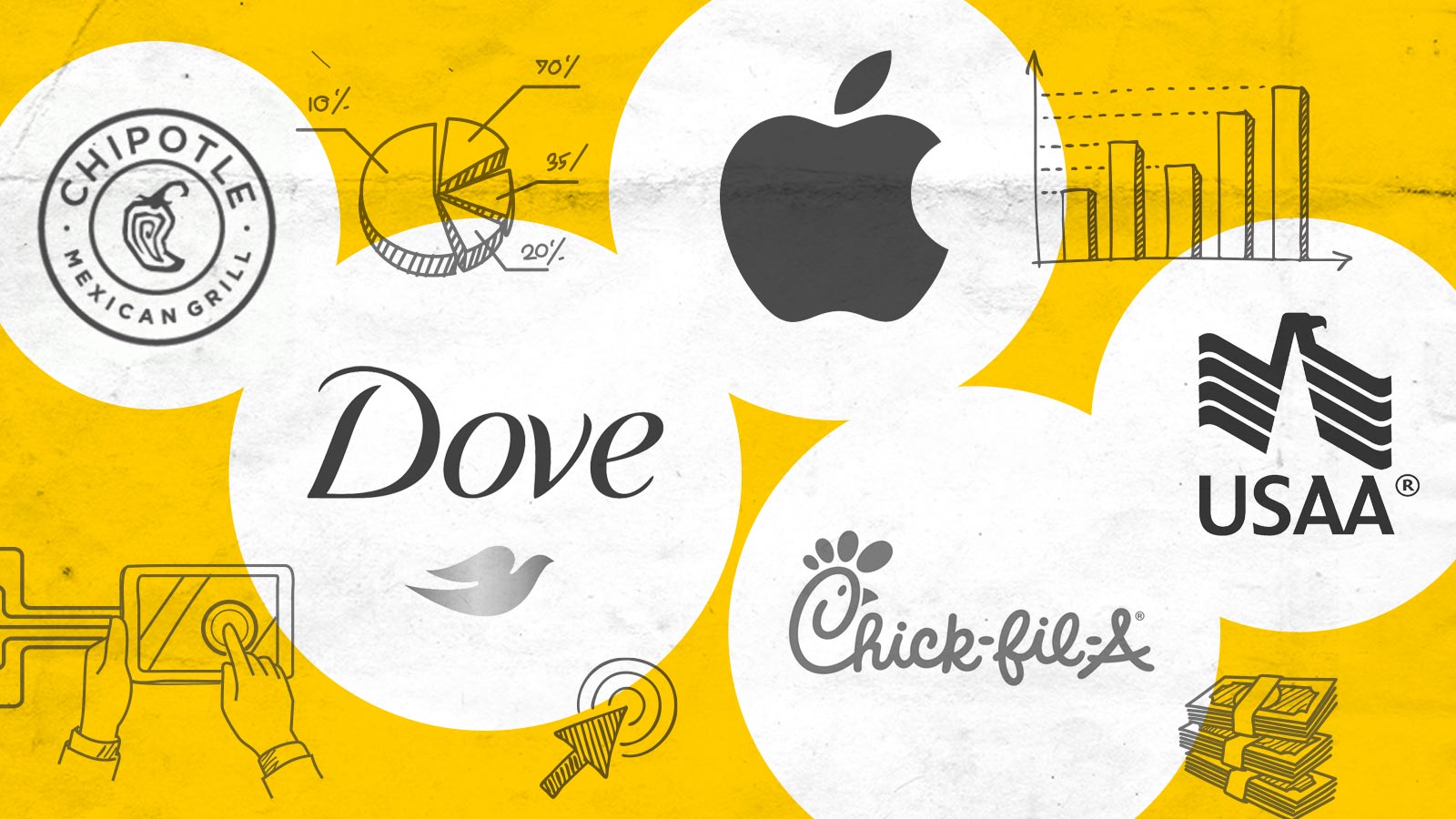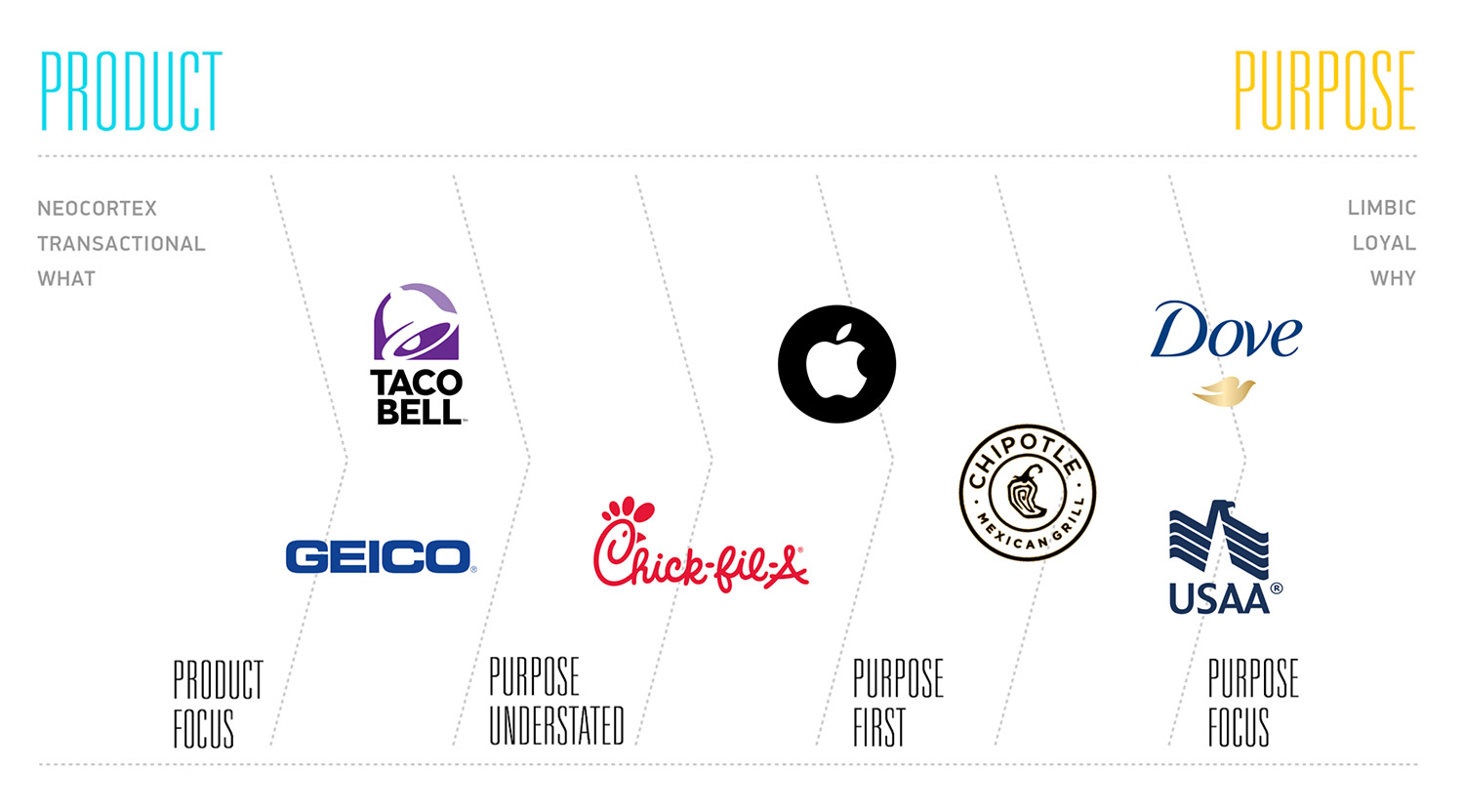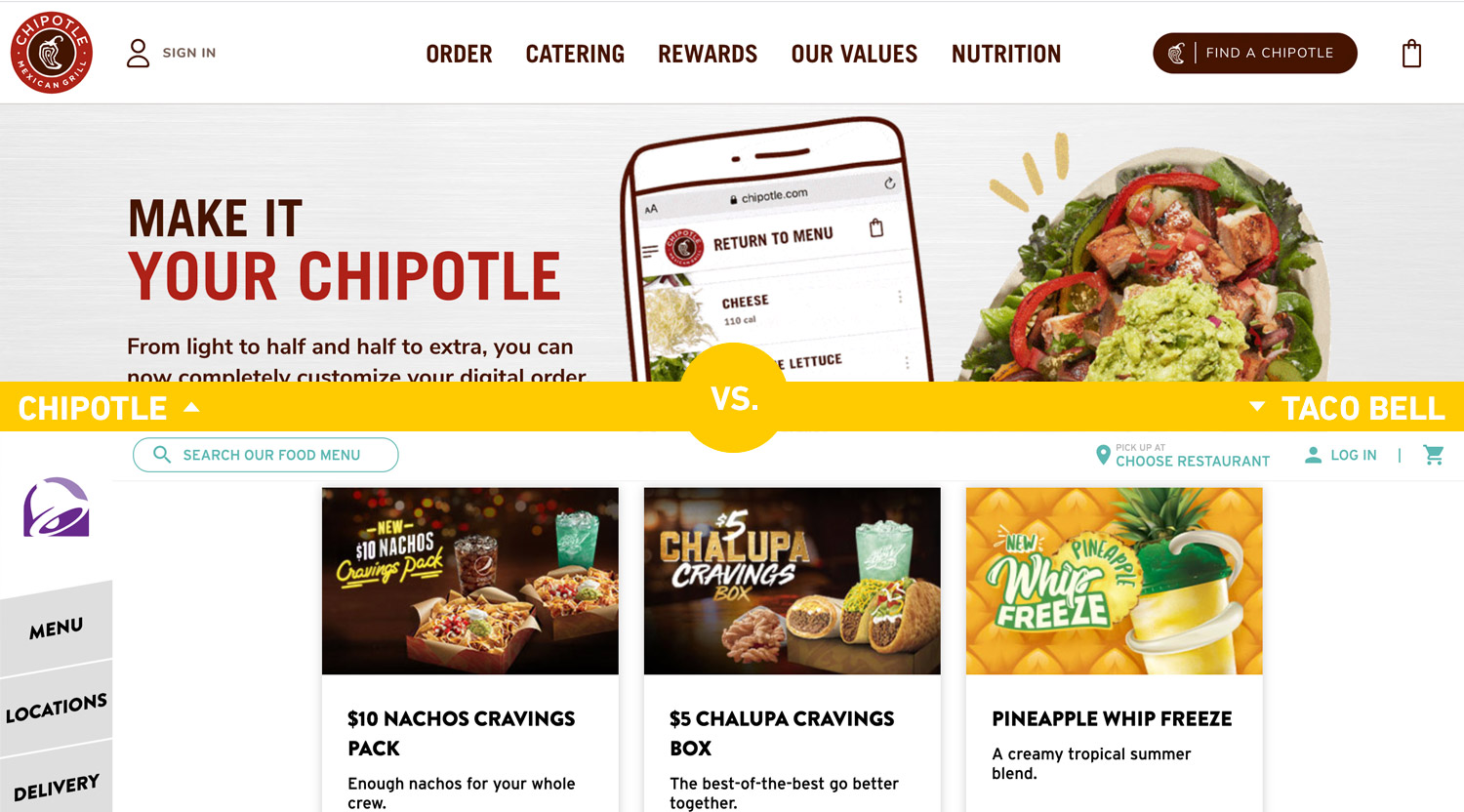
In some of my other articles, we’ve talked about doing business with purpose as well as changing the conversation. It’s so important to know why you’re doing what you’re doing, and then apply it to how you live your life, both personally and professionally.
This isn’t necessarily a new concept, but it’s definitely one that is a bit counterintuitive. As I’ve mentioned before, it’s sort of a paradox—in order to be successful in business, you need to reframe what “successful” truly means for you. As you’re thinking about taking this next step, it helps to look at other brands who’ve paved the way.

So, in order to best implement your own conversation changes, I thought we’d take a look at five different brands that have already gone through their own process of rediscovery. As you’ll see in the diagram above, there’s a whole spectrum of strategies, from “product-focus” to “purpose-focus,” and by examining a few brands and where they land on the spectrum, we can start to understand where your business should fit.
Chipotle®
Chipotle is a great example because we have their alter-ego to compare them against: Taco Bell®. Essentially, they both offer the same type of product but go about it in completely different ways. While Taco Bell’s messaging focuses solely on price (the first message you get on their site is for a $10 dinner box), Chipotle is more focused on sustainability, transparency, and nutrition.
Just take a look at the two menus—Chipotle literally has ‘Our Values’ and ‘Nutrition’ on the main menu, where Taco Bell’s is nowhere to be found. I’m not trying to demonize a brand here. Taco Bell is very strategic about their messaging as well—they connect through your wallet. But, they’re focusing on a transactional relationship. Chipotle is building a tribe of loyal customers who stand for what they stand for, and demonstrate it by buying their food. They’re connecting on a deeper, more sustainable, level that cuts across social and economic lines.

Dove®
In a way, Dove is the godfather of purpose-driven marketing, maybe because their journey has been so dramatic over the years. In the mid-20th century, Dove was just like any other soap brand—they talked about how their products will make you beautiful. But, as time passed, they realized they were feeding into the idea that there was one version of beauty; they had created a standard for women to live up to. Dove saw this as a growing problem and adapted to find a new purpose.
Since 2004, Dove has completely changed how they communicate with their customers. They’re advocating for women and redefining beauty in the 21st century. Really, they don’t even talk about soap. Plus, by communicating with their purpose first, their sales have exploded, jumping from $2.5 billion to $4 billion after the shift.
Apple®
Apple succeeds where most tech companies fail because of their clarity and consistency. They’re not necessarily the most purpose-driven company on this list—in fact, they sit squarely in between product and purpose. But, they’ve been unflinchingly consistent since they launched in 1976.
Apple’s mission is to “bring the best user experience to its customers through its innovative hardware, software, and services.” They still mention their product. And, if you go to their homepage, they even lead with price. But, the key difference here is they talk about how their product will affect people. Apple founder Steve Jobs set out to create a personal computer that would empower individuals to challenge the status quo and change the world.
Their internal culture is driven by this ‘why’ and it inherently informs their external culture as well. It’s still purpose-driven, it’s just used more subtly in their communication. Even the $399 iPhone on their homepage speaks to how it will impact your life. They’re a great example of a brand that finds a middle ground between selling and impacting, and how often it can be the same thing.
USAA®
Another unique example is USAA. It’s important to note that USAA’s purpose is to “facilitate the financial security of its members.” And, its members must be active military, a veteran, or related to one of the two. In other words, their purpose is exclusive and cuts out millions of potential customers.
This is important because by stating their purpose and using it in communication, they’re distilling their audience to only qualified leads and members. By being purpose-driven, they’re also being efficient. And, by knowing their purpose, they can lead fully into the purpose-driven marketing to connect with those who believe what they believe and stand for what they stand for. Contrast USAA’s approach with Geico®, who leads with transactional messaging focused on how much money you can save.

Chick-fil-A®
If you asked most people, they’d say that Chick-fil-A® lands squarely on the purpose-driven side of the scale. But, they’re actually smack-dab in the middle. They’re a great example because most people know they’re a faith-based brand, but they don’t use it in any of their marketing language. It’s important because even when you know your purpose, you can decide what level you want to communicate that to your customers.
Take me, for example. I don’t hide the fact that I’m called by God to help others uncover their purpose and build their life on it. But, even if you’re driven by faith, you can adapt that messaging to make sense for your business. Chick-fil-A® can have a spiritual foundation and purpose but still focus on selling chicken sandwiches. It’s all about knowing, because once you know your purpose, it will inform every decision you’ll make from that point forward.
So, is it time to uncover your purpose? Each of these 5 brands are great examples of why and how it works, and it can apply directly to your business. Everyone has a purpose and a reason for doing what they’re doing, and once you start using it to guide your decisions, you’ll never look back. Talk to one of our Strategists today and learn how AM can help transform your life and your organization.
All copyrighted brands, images and references above are used here for editorial purposes only.
